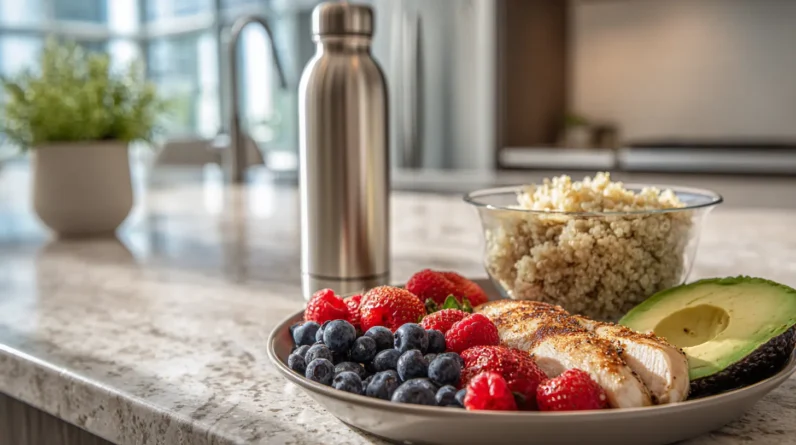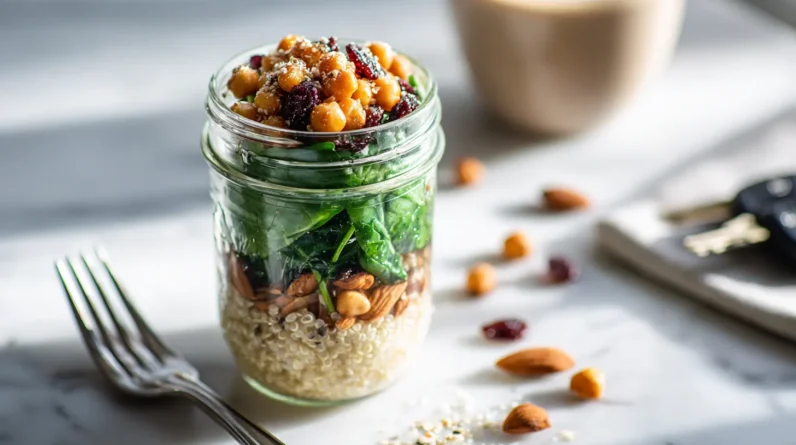
Understanding the importance of hydration isn’t just about quenching thirst; it’s vital for women’s health. Water optimizes brain function, digestion, and kidney health. It’s key for clear thinking, effective digestion, and efficient toxin removal. Women should aim for 2.7 liters of fluids daily, adjusting for activity levels and health conditions. Adequate intake prevents kidney stones, improves mood, and supports weight management. Our diet should include water-rich foods and beverages for overall wellness. Keeping an eye on urine color helps monitor hydration levels. By embracing these strategies, we enhance our well-being and pave the way for a deeper understanding of our body’s needs.
Understanding Hydration Science
Understanding the science behind hydration reveals how water’s role is essential in maintaining the intricate balance of women’s health, impacting everything from cognitive functions to skin vitality.
Water is indispensable in preserving normal hydration levels, crucial for ideal neurological, gastrointestinal, and renal functions. This balance is critical for women’s nutrition, influencing not only our mental clarity and digestive health but also our kidney’s efficiency in waste elimination.
Moreover, adequate hydration supports skin health, contributing to a vibrant and youthful appearance, while also playing a key role in body weight management. Environmental factors can greatly alter hydration needs, underscoring the importance of adapting water intake to maintain ideal health.
As we explore further into women’s nutrition, the evidence is clear: staying well-hydrated is foundational for overall well-being.
Daily Water Intake Recommendations
For peak health and well-being, women should aim to consume about 2.7 liters (91 ounces) of fluids daily, with around 20% potentially sourced from food. This fluid intake is foundational to maintaining ideal hydration, essential for overall health.
However, it’s important to recognize that factors such as pregnancy, breastfeeding, and increased physical activity can elevate water needs, adjusting daily water intake accordingly.
Monitoring hydration status is straightforward; urine color offers a reliable indicator, with pale yellow suggesting sufficient hydration. We emphasize the importance of individualizing hydration strategies, considering personal health conditions and lifestyle factors.
Water and Disease Prevention
While we’ve emphasized how much water women should drink daily for optimal health, it’s equally important to examine how adequate hydration plays a key role in preventing diseases.
Essential water intake is vital for preventing kidney stones and enhancing bowel function, directly impacting women’s overall well-being. Moreover, dehydration can significantly affect memory, perception, and cognitive function, highlighting the significance of water for mental health.
In addition, increasing water consumption is an effective strategy for weight loss, contributing to disease prevention and management. Proper hydration also supports women’s hormonal balance and skin health, crucial for long-term wellness.
Practical Hydration Tips
To guarantee peak health and prevent diseases, it’s essential we integrate practical hydration tips into our daily routines, starting with recognizing that women’s daily water intake should be around 11.5 cups, though this can vary based on individual factors like age and activity level.
We must emphasize that proper hydration goes beyond simply drinking water; it’s about understanding its critical role in digestion, nutrient absorption, and overall well-being. Monitoring urine color and frequency offers a practical approach to assess hydration status, ensuring we’re adequately hydrated.
Moreover, including water-rich foods into our diet not only aids in hydration but also supports skin health, hormone balance, and cognitive function. Embracing these strategies guarantees we maintain peak hydration, essential for our health and vitality.
Various Hydration Sources
Building on practical hydration strategies, let’s explore the variety of sources from which women can effectively meet their hydration needs. Beyond the essential intake of water, water-rich beverages play a pivotal role. Herbal teas, such as chamomile, peppermint, and green tea, offer invigorating alternative hydration options while contributing positively to fluid intake.
For those seeking variety, low-sugar juices and smoothies can be both nourishing and hydrating. Introducing hydrating fruits like cucumbers and watermelon, alongside hydrating vegetables, guarantees a balanced approach to hydration.
Additionally, hydrating snacks, including yogurt and broth-based soups, can significantly support women’s hydration. Understanding the wide range of hydration sources, from herbal teas to hydrating vegetables, empowers women to diversify their fluid intake, enhancing overall health and well-being.
Recognizing Dehydration Signs
Understanding the signs of dehydration is essential for women, as they’re more susceptible to its effects due to hormonal fluctuations and smaller body water reserves. It’s important to note that dehydration can manifest through dry skin, fatigue, dizziness, and prominently, dark yellow urine. It’s vital to remember that thirst mightn’t always signal the need for water, especially during life stages like pregnancy or menopause, making it imperative for women to be vigilant.
Monitoring urine color and frequency offers a practical approach to evaluating hydration status. It’s advisable to be aware that certain medications, such as diuretics and laxatives, could elevate the risk of becoming dehydrated. Thus, staying informed about the signs of dehydration and understanding one’s body are key steps in maintaining an ideal hydration and overall health.
Managing Excessive Water Intake
While it’s important to stay hydrated, we must also be mindful of not overdoing it, as excessive water intake can lead to serious health issues like hyponatremia. This condition, characterized by low blood sodium levels, emerges from consuming too much water.
Symptoms such as headaches, confusion, and muscle cramps may seem benign at first but can escalate to brain swelling, coma, or even death if not addressed. Individuals with certain diseases, mental illnesses, or those engaged in endurance activities are at a higher risk of developing hyponatremia.
To mitigate these potential risks, it’s essential to balance water intake. We advocate for a measured approach to hydration, considering individual health conditions and activity levels, to prevent the adverse effects associated with excessive water consumption.
Conclusion
Ironically, while we’ve been investigating intricate solutions for enhancing women’s health, the answer has often been as straightforward as drinking water. We’ve explored the science, outlined our daily needs, and examined water’s role in disease prevention.
Our tips and insights into recognizing dehydration and managing excessive intake have, hopefully, illuminated the path to better hydration. Isn’t it ironic that in our pursuit for health, the most effective tool might just be the most basic and abundant resource on our planet?







